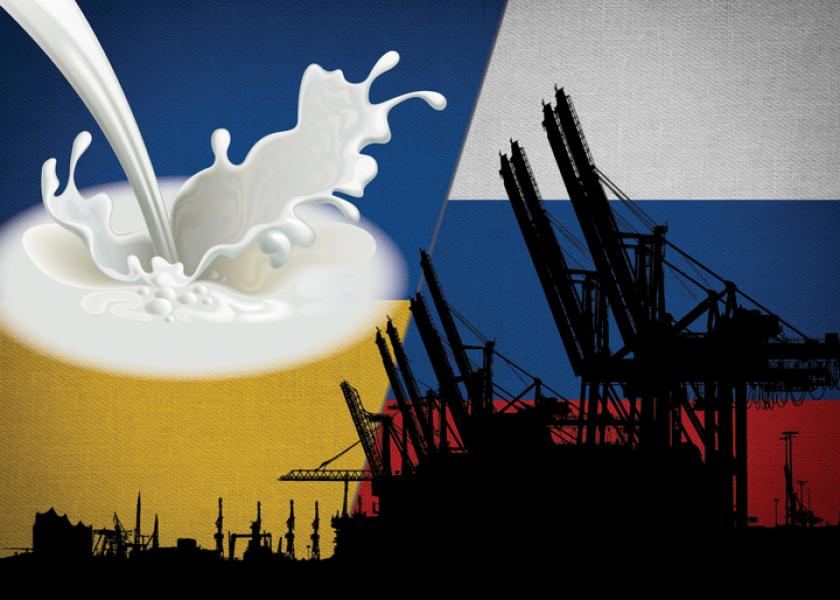Russia’s Invasion of Ukraine to have Far-Reaching Impacts on Dairy

Russia’s unrelenting attack on Ukraine will worsen the ongoing disruptions in the dairy supply chain. In addition, inflation in dairy markets could begin to weaken dairy consumption, particularly in Russia and low-income nations.
Betty Berning, analyst with the Daily Dairy Report, said that while Russia’s invasion of Ukraine will almost certainly reduce dairy consumption in those countries, “it will also impact the global dairy industry, not necessarily through supply and demand shifts, but by causing prices of critical inputs such as oil, natural gas, and fertilizer to increase.”
According to Rabobank, Russia and Ukraine are responsible for 18% of global corn exports, a key feed ingredient in dairy rations worldwide. As corn and other input prices rise, milk and dairy product prices will likely rise, too. Higher dairy prices will threaten global consumption, particularly of high-value dairy products.
“In Russia, as the ruble weakens and costs increase, dairy consumption could fall as consumers are forced to choose purchases carefully,” Berning said. Access to products could also be an issue, she said. Some dairy companies, such as Lely, have ceased operations in Russia, while Danone, which has suspended investments in Russia, has closed one of its two plants in war-ravaged Ukraine.
Russia is one of the world’s most deficient dairy countries, according to the United Nations’ Food and Agriculture Organization. While per capita dairy consumption in Russia, on a milk equivalent basis, is a hefty 315.4 lbs. per person, according to Italy’s CLAL, it is still well below Europe’s 550 lbs. per person.
“Russia was forced to grow its domestic dairy industry after issuing an embargo against dairy products from the European Union, Australia, United States, and New Zealand in response to sanctions issued by those countries due to Russia’s annexation of the Crimean Peninsula,” Berning noted. “And outside investors have poured money into the dairy industry since 2015 to make Russia self-sufficient.”
Since the embargo, Russia has grown milk production by 15%, according to Rabobank. Even so, the country still imports much of its milk needs from neighbor and ally Belarus, which ships the majority of its milk into Russia.
Belarus was expected to produce more than 17 billion pounds of milk in 2021 and supplied Russia with 154.5 million pounds of butter and 615 million pounds of cheese in 2021, accounting for 60% of Russia’s butter imports and more than 85% of its cheese imports. Russia also relies heavily on imports of fluid milk, skim milk powder, whey, buttermilk, and yogurt, Berning said.
“The global supply chain has still not recovered from the ongoing pandemic-related disruptions, and Russia’s invasion of Ukraine has only compounded the situation,” Berning said.







